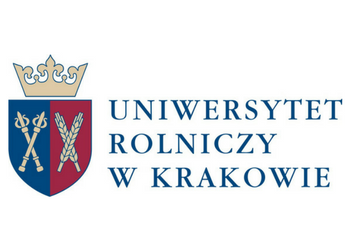NERVE4 Action
Latest news -> NERVE4 Action – Network establishment for V4 wetland forest protection
NERVE4 Action - Network establishment for V4 wetland forest protection
Wetland forests and nearby habitats represent only a small fraction of the Earth’s total land area. Nevertheless, these areas have been described as the lifelines of the landscape, providing services of global importance and so deserving disproportionate attention in the near future as key environmental resources. Much more worrying is that, in recent years, there has been a more than 50% loss of wetland areas globally, with even greater losses (ca 80%) in Europe and North America. These losses are associated with massive deforestation, drainage, and climate changes leading to severe forest degradation. It is known that wetland forests and aquatic systems interact in a complex manner and together have been identified as essential elements in mitigating climate change. Thus, a call to action for the preservation of forests, of water and so of climate, is emerging on many fronts as key to human survival. Such work stands among the top priorities in suitable development goals, as defined in The Agenda 2030 (United Nations, 2015). In this context, NERVE4 Action will ensure the harmonization of recommendations for European wetland forest protection. As such, improved biodiversity management will facilitate delivery of Aichi targets for Restoration (2010), Madrid Resolution MCPFE (2015), the EU Biodiversity Strategy 2020 and outcome of Agenda 2030.
The overall aim of the NERVE4 Action is to create an international working network for the conversion of knowledge on biodiversity loss, restoration, and sustainability in European wetland forests among scientists and stakeholders, and to raise awareness of wetland forest protection within and outside the V4 region. We want to establish the long-standing biodiversity and environmental monitoring network of the most representative wetland forests of V4 to prepare evidence-based guidance to practical nature conservation. This monitoring will help to identify main gaps and find solutions on how to protect European wetland forests. The benefits and obstacles of wetland forest protection will be described in the wetland protection brochure and educational video. It will allow to produce guidance and recommendations on how managed woodland systems enhance the biodiversity of woodlands in particular, and thus the functioning of the wider ecosystems of which they are a part. The project will facilitate wetland ecosystems enhancing biodiversity in European wetlands via specific methodologies applicable in practice. We will use unique possibilities to compare four regions with different climatic conditions to predict biodiversity response driven by climate change. To facilitate the survival of the remaining populations of endangered species, targeted management, and monitoring measures will be incorporated into wetland protection brochure. As the project will be ongoing, you can look forward to 2 day workshop / conference event in May 2023.
Participants
Czech University of Life Sciences Prague, Faculty of Environmental Sciences, Czech Republic
Plant ecology lab is group fulfilling the project goals in the Czech Republic. Our team members have rich experience from the field of ecology and biodiversity from wetland forests and various other habitats aswell. More information can be found on this websites.
For monitoring we choose 70 ha area of alder swamp forest in protected area Vrbenské rybníky in southern Bohemia, often reffered to as alder carr Černiš.

Centre for Ecological Research, Institute of Ecology and Botany, Hungary
The Forest Ecological Research Group focuses on the investigation of species and functional composition, structure and dynamics of forests. Their expertise includes investigation of stand structure, many organism group determination (plants, animals, fungi), measuring forest site conditions (microclimate, soil conditions) and biological processes (decomposition, predation, regeneration, effect of large herbivores). The group has long-term experience with the vegetation monitoring in wetland forests.
in Hungary, the 70 ha sized Ócsa Alder Swamp Forest Reserve in Budapest region was chosen for monitoring.
University of Agriculture in Kraków, Faculty of Forestry, Poland
Laboratory of Dr. Remigiusz Pielech at Faculty of Forestry University of Agriculture in Kraków focus on understanding the functioning and diversity patterns in riparian ecosystems, the effects of large scale disturbances and browsing pressure on forests. It is also involved in collaborative analyses of temperate forest dynamics as well as patterns of diversity in Palaearctic grasslands.
in Poland, large complex (ca. 900 ha) of alder swamp forests located in the Barycz River valley near Żmigród was chosen for monitoring.


Institute of Forest Ecology, Slovak Academy of Sciences, Slovakia
Institute of Forest Ecology, Slovak Academy of Sciences focuses on the biology and ecology of organism associated with successional processes in forest ecosystems including wetland forests. The Institute also deals with problems concerning long-term changes and stress factors in forest ecosystems, in both geographic and biotaxonomic terms. Studies on the structure, productivity and stability of natural, semi-natural and culture-influenced forests also feature prominently in the Institute‘s research program, encompassing pedology, phytocoenology, phenology, mycology, ecophysiology, as well as invertebrate and vertebrate zoology.
For monitoring in Slovaki was chosen wetland forest complex in national nature reserve Šúr.
Visegrad fund
The Fund is an international donor organization, established in 2000 by the governments of the Visegrad Group countries—Czechia, Hungary, Poland and Slovakia—to promote regional cooperation in the Visegrad region (V4) as well as between the V4 region and other countries, especially in the Western Balkan and Eastern Partnership regions. The Fund does so by financing grants and awarding scholarships and artist residencies through its annual budget of €8 million annually provided by V4 governments.
The project is co-financed by the Governments of Czechia, Hungary, Poland and Slovakia through Visegrad Grants from
International Visegrad Fund. The mission of the fund is to advance ideas for sustainable regional cooperation in Central Europe.

